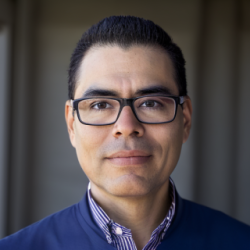The American Association for Thoracic Surgery held its 103rd meeting in Los Angeles, CA, from May 6–9, 2023. Leading experts shared their research, including the latest clinical trial updates in cardiac, thoracic, and congenital surgery, in a collegial gathering in an open format. Importantly, two major clinical trials in cardiac surgery will help inform surgeons in the rapidly evolving field of aortic valve replacement.
Dr. Lars Svensson shared the results from the PROACT XA trial, which was a randomized clinical trial examining anti-coagulation strategies for the ON-X mechanical valve (Artivion Inc. Atlanta, GA) randomizing patients with standard anti-coagulation with a vitamin K antagonist (warfarin: INR range of 2.0-3.0) versus the Direct Oral Anti-Coagulant (DOAC) Apixaban. The primary endpoint was a composite of valve thrombosis or valve-related thromboembolism (myocardial infarction, stroke, TIA, arterial thromboembolism). There were 863 randomized patients with balanced demographic variables, including a mean age of 56 in the apixaban group and 55 in the vitamin K antagonist group. Importantly, this trial was stopped early due to an excess of thromboembolic events noted in the apixaban arm (14 strokes, 0 TIA, 0 myocardial infarction, and three arterial thromboembolism) versus the vitamin K antagonist (0 stroke, 5 TIA, one myocardial infarction, 0 arterial thromboembolism). Patients were transitioned off of the study drug and back on to warfarin.
Unfortunately, this study provided evidence that the BID drug apixaban was not a safe alternative to warfarin therapy for the On-X aortic valve. However, one bright spot was the low number of overall thromboembolic events in the warfarin arm (INR 2-3) at 1.28%/patient- year. Also, in the discussion period at the meeting, there was mention of a similar ongoing trial in South Korea that is examining contemporary mechanical aortic valves implanted > three months, only randomizing them to warfarin versus a “once-a-day” dosing strategy with rivaroxaban (instead of BID apixaban): The “RENOVATE” Trial.
The second major aortic valve trial was an update on the “COMMENCE Trial,” which now has a seven-year follow-up on a biologic aortic valve with RESILIA tissue (Edwards Inc. Irvine CA). RESILIA tissue is a bovine pericardial tissue that incorporates a novel integrity-preservation technology that prevents calcium binding through stable capping of free aldehydes and allows dry storage via glycerolization. The RESILIA aortic valve studied in COMMENCE trial is built on the Carpentier-Edwards PERIMOUNT Magna Ease valve. In full disclosure, I presented the updated 7-year trial results on behalf of all the clinical investigator sites, which allowed me to take a deeper dive into the “RESILIA” data. This trial examined the durability of RESILIA tissue in the aortic valve position out to a mean of 7.7 years employing the consensus 2008 Akins et al. definition for structural valve deterioration.
The COMMENCE trial originally enrolled 694 patients with a planned follow-up for five years, and the results showed excellent durability with no structural valve deterioration (Bavaria et al. Annals of Thoracic Surgery 2022). However, in the era of increased focus on tissue valve durability especially as younger patients are asking for this option, The Food and Drug Administration asked the sponsor to continue following patients out to 10 years at the top three enrolling centers. The sponsor subsequently offered all participating sites the opportunity, and 225 patients were reconsented with similar demographics to the original cohort (mean age 65, 77% male, average Society of Thoracic Surgeons mortality Risk Score 2.1); although in this group, slightly larger valves were implanted. The seven-year results were impressive, with only two patients showing Structural Valve Deterioration (SVD). One of the SVD pts was treated successfully with a “Valve-in-Valve” transcatheter valve, and the other patient had stage 3 kidney disease and peripheral vascular disease, which may have contributed to the SVD, and she received a mechanical valve. Overall , this represented a 99.3% freedom from SVD at 7.7 years. Annual echocardiography was examined by a core lab and showed mean gradients of the cohort remained stable at of approximately 10 mmHg with 97% of patients having zero or trivial valve regurgitation. These patients will be followed for 10 years, with further updates in the future. The manuscript preparation is underway.
The 2020 American College of Cardiology /American Heart Association Guidelines for valvular heart disease encourage shared decision-making between surgeons and patients concerning their valve choice between mechanical and tissue valves. The On-X and RESILIA valve trials from the 2023 103rd meeting of the AATS will further inform those discussions in the rapidly evolving field of aortic valve replacement.
Dr. Beaver serves as a Consultant to Atricure Inc. and Edwards Lifesciences Inc.; serves on the Data Safety Monitoring Board for the Nexxus trial. He is a study site Investigator for Abbot Inc. , Edwards Inc., Gore Inc. and Medtronic Inc.
Image by invincible_bulldog / Getty







